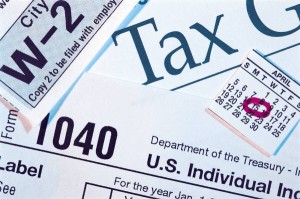Being a freelance writer has a lot of perks. Doing taxes is not one of them. There are a lot of different questions to get answers to and tax forms to fill out. Add in self-employment taxes, and doing taxes as a freelancer is downright unpleasant in many cases.
Are Freelancers Targets of the IRS?
There is a lot of confusion about how the IRS handles freelancers, and a lot of that comes from the freelancers themselves who are faced with some tricky tax questions. First, remember that the IRS doesn’t “target” anyone, per se. Second, remember that the IRS audits a relatively small percentage of tax returns for any reason, so there isn’t a lot of extra resources for targeting things that are not commonly fraudulent. Believe it or not, freelancing, on the side, or as a main source of income, is not uncommon. There are basically only three things that can happen once your taxes make it to the IRS once you have filed your freelancer income taxes.
- A computer scans your return, no problems are noted and your return is “fine” but, as always, eligible for a random audit.
- A computer program flags your return for further review.
- A computer flags your return for a random audit.
Basically, when we are talking about “targeting” we are talking about what kinds of things might make a computer want to analyze your return further, and if flagged, what kinds of things might make a human reviewer ask for additional information, documentation, or a full audit? While the IRS never fully discloses just what processes it uses to determine which returns to audit, unusual numbers are known to be one of the main triggers. For example, if you earn $30,000 in wages, but have $27,000 in charitable contributions, that is pretty out of line with what others in the same income range have.
You can check your credit score at Credit Karma. Check out my review.
Freelance Income and Taxes
Remember, the IRS doesn’t really care where you get your income from. What they care about is that you report all the income you earn so that they can tax you on every penny. To ensure that all (most) income is reported, the IRS requires that anyone that pays you more than $600 during the year must file a 1099 form with the IRS to report that income. You get a copy of the same form to use when filing your taxes, and as a not too subtle reminder that the IRS already knows about this income, so you better report it.
Is There Such a Thing as Too Much Freelance Income?
I’m not sure where this thought originally came from, but it comes up a lot. Remember, the IRS does not care HOW you earn your money. They don’t care if you have a full-time job and earn $250,000 on the side as freelancer. As long as you pay taxes on it, that’s all the IRS is concerned about. There are other government agencies that may wonder about how you earn that much money, but not the IRS.
What the IRS does care about, is when you have a full-time job, and then you lose money running a business, like a freelance business on the side. The issue here is that the IRS doesn’t want to lose tax revenue based on you deducting money from your business loss from your already earned and reported (and waiting to be taxed) W2 income from your “regular” job.
Even then, as long as you have a “profit motive,” the IRS allows you to deduct your losses from your business. What exactly a profit motive is takes up a lot of Tax Court case law, but there is a safe harbor provision. Essentially, if your freelance small business generates a profit in three of the last five years, then you get the presumption that your business is a legitimate business. In this case, you are most certainly not a target for the IRS.
That being said, some professions and small businesses supposedly get more scrutiny due to the fact that it can be easier to fake deductions or hide income. However, if you report all of the income that you see on your 1099 forms, and your business deductions are not out of line with what other businesses have with the same income and number of employees, then your own targeting would stem from the math possibly not adding up.
In other words, go earn as much money as you can as a freelance writer. Don’t worry about the IRS. They’ll be happy to take more and more self-employment taxes from you on top of your normal income taxes.
